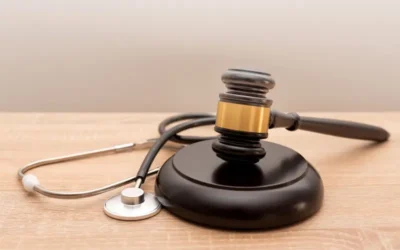Medical record review is required for medical and legal purposes. It helps ensure that the patient received the right treatment for his/her particular health condition. In other words, a detailed review helps determine medical necessity of the various services provided to the patient. At the same time, accurate analysis of a claimant’s medical records is important also to decide on a fair claim settlement in personal injury, medical malpractice, product liability, and other medical litigation. The review needs to be professionally and objectively done so that health insurers have a clear understanding of the medical claim submitted for reimbursement. It also helps identify any manipulations in the claim that suggest possible fraud.
Why Medical Necessity Is an Important Consideration
One of the most common forms of health insurance fraud is misrepresenting treatments that are not covered as medically necessary. This makes medical record review for medical necessity a very important consideration. Claiming for treatments that are medically unnecessary leads to increase in the overall cost of hospitalization. Among all the types of insurance frauds recorded in the United States, medical insurance fraud and Medicare/Medicaid insurance fraud make up the large majority of false claims. The CMS cautions that U.S. spending on healthcare is estimated to grow at an average rate of 6.2% annually.
Medical claims review, a medical record review solution, can help identify fraudulent claims and medically unnecessary services. Medical record review for attorneys include review of the following types of documents:
- ED records, Nurses’ notes/Triage notes
- Admission records
- History and physical
- Discharge summary
- Operative notes
- Pathology reports
- Lab test reports
- Consulting physician reports
- Diagnostic imaging reports
- Ancillary services reports such as occupational therapy and physical therapy reports
- Comprehensive clinical reports
A comprehensive medical chart review would clearly identify the patient and whether he or she is being provided the care identified on each chart entry. It would ensure that all entries are legible and dated, and complete. Other details reviewed include the following.
- Whether plans of action/treatment are consistent with the diagnosis (es)
- Whether there is documented evidence of appropriate use of consultants
- Whether there is documented evidence of continuity and coordination of care between primary and specialty physicians
- Whether consultant summaries, imaging study and lab results are included to reflect primary care physician review
- Whether chronology is maintained
- Whether informed consent is noted for all procedures and appropriate prescriptions
Since the review is comprehensive, it helps identify whether the patient received the appropriate treatment and also whether the claim is a genuine or fraudulent one.
The Case of Telemedicine
In April 2019, the U.S. Department of Justice (DOJ) charged 24 defendants in a $1.2 billion illegal Medicare kickback and bribery scheme. These defendants were providing illegal kickbacks and bribes to healthcare providers in exchange for prescriptions for medically unnecessary and inappropriate rendered durable medical equipment such as supports and braces. The scheme began with fraudulent telemedicine companies, and several individuals were identified who were involved in an international telemarketing network targeting people in the United States, Latin America, and the Philippines. The call centers sold the prescriptions to medical supply companies that fraudulently billed Medicare for more than $1 billion. Actually, the physicians had had no direct contact with the patients, other than some brief phone conversations. They had never met these patients.
The lockdown induced by the COVID-19 crisis facilitated telemedicine fraud and other fraudulent medical claims. Medicare has identified fake telemedicine appointments and insurance reimbursement for non-essential drugs and medically unnecessary or fictitious treatments as fraudulent claims. Medical care facilities, pharmaceutical/medical supply companies, nursing homes, medical clinics, individual physicians, physical therapists, chiropractors can all take advantage of the expanded broad coverage for telehealth services. Though physical therapists and chiropractors cannot apply treatments via telemedicine, they can evaluate the physical and functional capacity of the patient, discuss symptoms with other providers, and make DME recommendations.
Telemedicine healthcare providers bill for E & M (Evaluation and Management) services that cover patient evaluations, performing physical exams, obtaining patient histories, medical decision making and Medicare/Medicaid coding of these services that are specific to the time spent and the complexity of service. Fraudulent claims arise when providers engage in improper medical coding.
Medical Necessity Can Be Established via Medical Chart Review
A medical record review company evaluating a patient’s health record would scrutinize all the telemedicine visits, particularly physical therapy and chiropractic visits because these do not in the majority of case require complex medical decision making. When reviewing the medical records, a medical record reviewer would be looking for the following:
- The office notes must support the level of service billed
- The patient’s history must show that the prescribed home regimen or the DME prescribed is medically necessary
- Billing for phantom visits or non-existent physician visits
- Diagnostic studies referrals must be medically necessary and there should be documentation to support the same
- The DME must be compatible with the coded and billed items
The quality of healthcare depends on the accuracy and completeness of the medical records prepared by healthcare providers. In any claim or case, the medical-legal issues can be complicated and medical record reviewers need to be thoroughly professional and experienced. They will determine whether the documentation supports the required medical necessity for performing the procedure. Also, to establish medical necessity, professional reviewers will also check whether the acuity of care required for inpatient admission is validated by the documentation.




